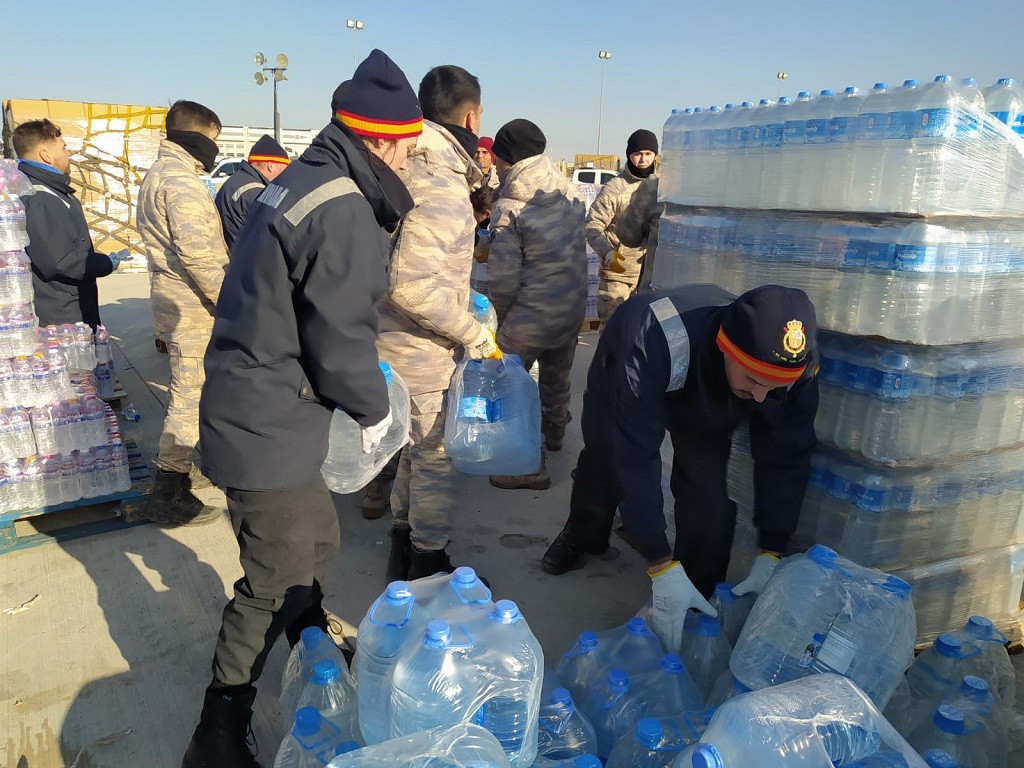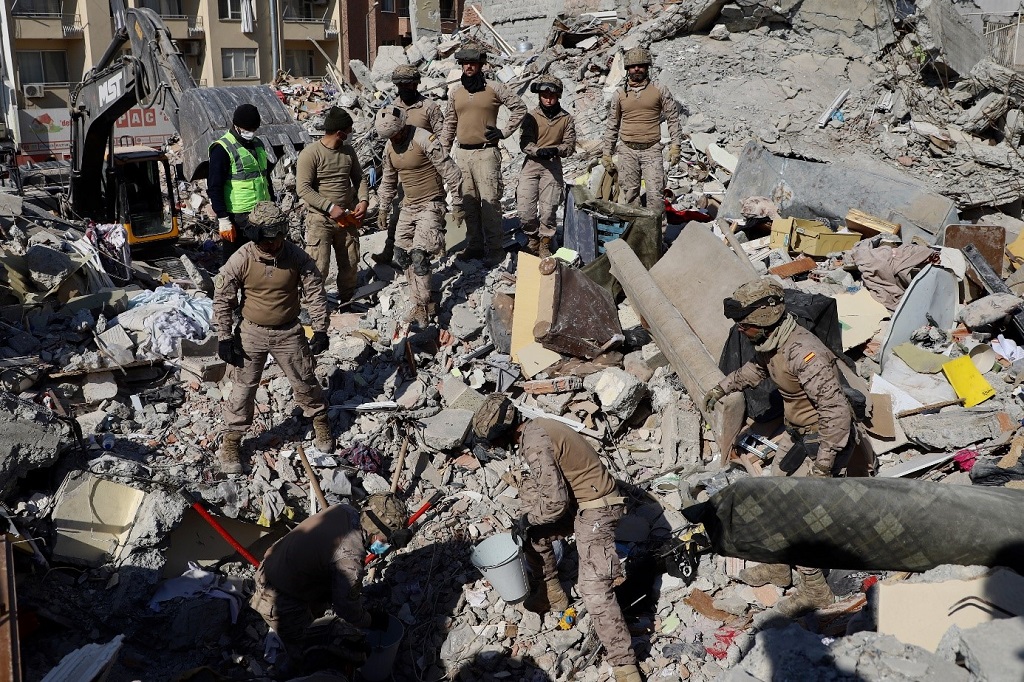
The Amphibious Air and Naval Expeditionary Group 'DEDALO 23' ends its humanitarian aid to earthquake victims in Türkeye
- It resumes its calendar of activities in support of NATO deterrence and defence and maritime security in the Mediterranean
The Amphibious Air and Naval Expeditionary Group 'DEDALO 23', consisting of vessels 'Juan Carlos I', 'Galicia', 'Blas de Lezo', and 'Cantabria' together with the 2nd Marine Landing Battalion, has now left Turkish territorial waters to resume its activity in support of NATO deterrence and defence and European maritime security - under the control of the Operations Command.
They are resuming their calendar of activities after a week of intense work in which they have carried out multiple tasks with the sole purpose of contributing to help the victims of the earthquake of 5 FEB in Türkeye.
DEDALO 23 arrived in Alexandretta on the 8th within 24 hours. Marine Corps from the Landing Battalion had established their base on the town's university campus and had begun aiding the rescue teams and distributing food.
Rescue support in the rubble was carried out in four different locations, with a total of 80 people working non-stop from the day of arrival until last Sunday. This effort was rewarded with the rescue alive of a seven-year-old boy and a 70-year-old adult on the fifth and sixth day since the earthquake, when hope was already waning.
On the other hand, since the large volume of foreign aid overwhelmed the handling capacity of ports and airports and the material accumulated without being able to be distributed, assistance was provided at both Adana airport and the port of Limak. Assistance was provided in unloading aircraft and ships and loading on trucks, including the Battalion's own trucks. This expedited the delivery of 3,600 tonnes of aid.
The Spanish contingent also distributed 40 tonnes of its own bottled water and food stocks through government agencies and NGOs and set up five camps in support of the Turkish emergency organisation AFAD.
Another priority task was to support the Spanish rescue and relief teams in the area. To this end, daily contact was established and transport support was provided to the Firefighters of the Community of Madrid, in their withdrawal, logistical support was provided to the Firefighters of Malaga and the Spanish Agency for International Development Cooperation (AECID, in Spanish) cooperated in setting up the Field Hospital by providing 40 tonnes of food and water and 2,000 litres of diesel fuel. Survival kits were also supplied to Turkish NGOs.
In the coming days, the DEDALO 23 Group will change its configuration as it plans to participate in NATO's enhanced defence activities. Harriers from the 'Juan Carlos I', along with fighters from the US Navy's 'George H.W. Bush' aircraft carrier and those from the 'Cavour', are scheduled to take part in NATO enhanced defence activities. Bush' and those from the Italian Navy's 'Cavour', will fly over the skies of Romania, Hungary, Slovakia, North Macedonia, Albania, Greece and Italy to demonstrate Spain's commitment to the collective security of the allies.
These activities will be combined with exercises on the Italian and Albanian coasts, where the Marines will resume their military missions and amphibious training, which allows them to access any coastline in the world at very short notice, even if there are no ports or airports nearby. This was precisely the case in Alexandretta, whose port was closed due to a large fire caused by the earthquake, and yet humanitarian aid could be provided within hours.
Fotos



